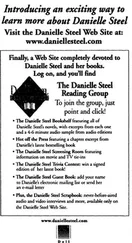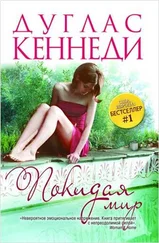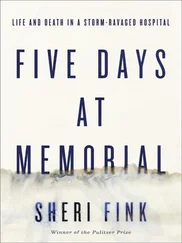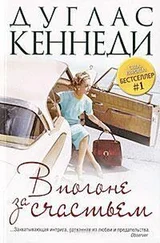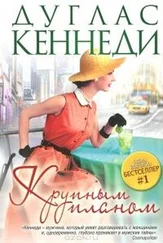Дуглас Кеннеди - Five Days
Здесь есть возможность читать онлайн «Дуглас Кеннеди - Five Days» весь текст электронной книги совершенно бесплатно (целиком полную версию без сокращений). В некоторых случаях можно слушать аудио, скачать через торрент в формате fb2 и присутствует краткое содержание. Год выпуска: 2015, Жанр: Современная проза, на английском языке. Описание произведения, (предисловие) а так же отзывы посетителей доступны на портале библиотеки ЛибКат.
- Название:Five Days
- Автор:
- Жанр:
- Год:2015
- ISBN:нет данных
- Рейтинг книги:4 / 5. Голосов: 1
-
Избранное:Добавить в избранное
- Отзывы:
-
Ваша оценка:
- 80
- 1
- 2
- 3
- 4
- 5
Five Days: краткое содержание, описание и аннотация
Предлагаем к чтению аннотацию, описание, краткое содержание или предисловие (зависит от того, что написал сам автор книги «Five Days»). Если вы не нашли необходимую информацию о книге — напишите в комментариях, мы постараемся отыскать её.
Five Days — читать онлайн бесплатно полную книгу (весь текст) целиком
Ниже представлен текст книги, разбитый по страницам. Система сохранения места последней прочитанной страницы, позволяет с удобством читать онлайн бесплатно книгу «Five Days», без необходимости каждый раз заново искать на чём Вы остановились. Поставьте закладку, и сможете в любой момент перейти на страницу, на которой закончили чтение.
Интервал:
Закладка:
Were I a cartographer of the fifteenth century, the map of my flat earth would terminate at the town of Brunswick, as I so rarely venture beyond its boundaries. Brunswick is a college town. Bowdoin is there. It was also, until recently, the home of a naval air station. There used to be a paper mill on the banks of its river. It’s now long closed. But as a kid passing through the town I can always remember the strange toxic whiff of glue that seemed to permeate the place. We were in Brunswick two or three times a year, as Dad’s closest childhood friend — Arnold Soule — was a professor of mathematics at Bowdoin. Dad and Arnold grew up in the same small town and bonded at school over advanced calculus. But whereas Dad chose U Maine and a high-school teaching career, Soule got a full scholarship to MIT and followed that with a doctorate from Harvard. He was a tenured professor at Bowdoin by the time he was twenty-eight and wrote wildly theoretical books about binary number theory (his specialty) that, according to Dad, were hugely acclaimed ‘in the theoretical mathematics community’. Arnold also happened to be gay — something he confided to my father when they were much younger, and at a time when such a revelation could have destroyed his life. Dad, for his part, kept Arnold’s secret just that — something that Arnold told me many years later when I was supposed to be coming down to the college with Lucy to hear a chamber music concert. When Lucy was flattened with flu and had to cancel at the last minute I called this great family friend and asked him if he’d like to join me. That was just over five years ago. Arnold had finally come out in the early nineties and was living with a graphics designer twenty years his junior named Andrew. When we met up that night Arnold was seventy and had just retired. He was a little rueful about giving up teaching, even though he was engaged in a massive ten-year writing project that was (as he told me) an accessible history of mathematical theory from Euclid onwards. I always liked Arnold, always felt that he was the interesting, understanding uncle I never had (I had rather judgmental aunts on both sides of the family). That evening five years ago — when we talked over a dinner in an Italian restaurant on Maine Street before hearing a visiting pianist from New York play a sublime program of Scarlatti, Ravel and Brahms at the college recital hall — he asked me a direct question:
‘Happy with your life, Laura?’
The question immediately unsettled me. Arnold saw that.
‘My life is fine,’ I said, hearing the defensiveness behind my response.
‘Then why did you flinch when I posed the question?’
‘Because it took me by surprise, that’s all.’
‘Your father tells me you’re highly regarded in your field.’
‘My father is being far too kind. As you know I run scanning machinery in a small local hospital. It’s hardly a great accomplishment.’
‘But it’s very important, skilled work. The thing is — and I say this as someone who has known you since you first arrived in this world of ours — I’ve always wondered why you seem to short-change yourself. And maybe it’s absolutely none of my business. But I’ll say it anyway, because you’re still a young woman with possibilities—’
‘I have two children and a husband and a mortgage and far too many bills. So my actual possibilities are few and far between.’
‘So you say. The truth is, we all have greater possibilities than we ever realize or want to accept. Look at me — I always wanted to live in Paris, teach absurdly abstruse calculus at the Йcole Normale Supйrieure, master the language, and take up with a marvellous French chap whose family just happened to own a chвteau in the Loire. And yes, I know that all sounds so clichйd — a gay mathematician’s picture-postcard reverie. But here I am, at seventy, and except for a week in the City of Light every summer with Andrew — to whom I’ve never revealed the French lover fantasy — have I ever used a sabbatical break or even the three months we get off every summer to live there? Hell, no. Know what I think? I think part of me still believes I don’t deserve Paris. Isn’t that terrible? And Andrew — who I also didn’t think I deserved when I first met him, but thankfully he thought otherwise — is now insisting that next summer, when he can take some leave from his job, we spend six months there. He’s already apartment hunting for us. And I am finally giving in to the idea.’
‘Good for you,’ I said, noticing that I was simultaneously strangling the napkin in my lap.
‘Yes, it’s only taken me fifty years of adult life to finally come to the conclusion that I deserve happiness. Which, in turn, leads me to ask: when are you going to start thinking you deserve happiness?’
‘I’m not unhappy, Arnold.’
‘You remind me so much of your father. He could have had the full ticket to Harvard or Chicago or Stanford or any other major university — because, on many levels, he was even cleverer than me. Just as I know you got accepted here at Bowdoin, but chose U Maine.’
‘You know why I chose U Maine. They offered me a full scholarship. Here it was only fifty per cent — and I would have had to take out a loan. ’
‘Which — had you gone to medical school — you would have paid back five years after getting your MD degree. And having just said that, I know I’ve overstepped. ’
‘Perhaps you have,’ I said. Thinking: You cannot begin to imagine how many times over the years I have privately reproached myself for this piece of late-adolescent bad judgment.
‘I’m truly sorry,’ Arnold said. ‘But I just want you to not make the mistakes I made.’
‘I’m afraid it’s too late for that. And I really think I’d like to get off this subject now. ’
‘Of course, of course.’
The remainder of the meal was rather forced, our conversation stilted, guarded, overshadowed by the uncomfortable exchange that had just occurred. Then we listened to the concert — but I didn’t hear a note, as everything Arnold told me kept churning around my head. Because it was, sadly, all so true, so right on the money. Afterward, my father’s friend walked me to my car, his head lowered, clearly distressed.
‘Will you forgive a foolish old man his foolhardy attempt to give out advice?’
‘Of course I forgive you,’ I said, embracing him lightly.
‘OK,’ he said quietly, realizing the landscape between us had changed. ‘Don’t be a stranger, eh?’
‘And don’t you find a way of not going to Paris.’
‘I’ll try not to.’
I never heard from Arnold again. Two months later he woke up one morning with chest pains — and died of a coronary occlusion less than an hour later. Life is like that. You’re here, in the midst of things. Then, out of nowhere, something shows up and snuffs your existence out. It’s always so dreadful, a sudden death like that. Always so profoundly unfair. And so distressingly common.
Brunswick. The border beyond which I rarely cross. My world: the thirty miles from Damariscotta to Brunswick.
And now.
Portland.
Our one proper city in Maine. An actual functioning port. A place of business. A foodie paradise — and a town which, if I was twenty-five and wanted to start out in a city away from the big metropolitan ambitions and pressures of a New York, a Los Angeles, a Chicago, I’d certainly think about considering. Ben especially likes what he calls ‘the Portland vibe — urban Maine bohemia’. I think he envisages himself in the future in some warehouse space near the docks, living simply, but having a huge studio space and doing well enough as an artist to meet his bills and fund his work. ‘I don’t really want to go to New York or Berlin,’ he told me recently. ‘I just want to stay in Maine and paint.’ As this comment came in the wake of that terrible period of his life I didn’t want to say that, quite honestly, the best thing that could happen for him as an artist was to get out of Maine for a few years.
Читать дальшеИнтервал:
Закладка:
Похожие книги на «Five Days»
Представляем Вашему вниманию похожие книги на «Five Days» списком для выбора. Мы отобрали схожую по названию и смыслу литературу в надежде предоставить читателям больше вариантов отыскать новые, интересные, ещё непрочитанные произведения.
Обсуждение, отзывы о книге «Five Days» и просто собственные мнения читателей. Оставьте ваши комментарии, напишите, что Вы думаете о произведении, его смысле или главных героях. Укажите что конкретно понравилось, а что нет, и почему Вы так считаете.


